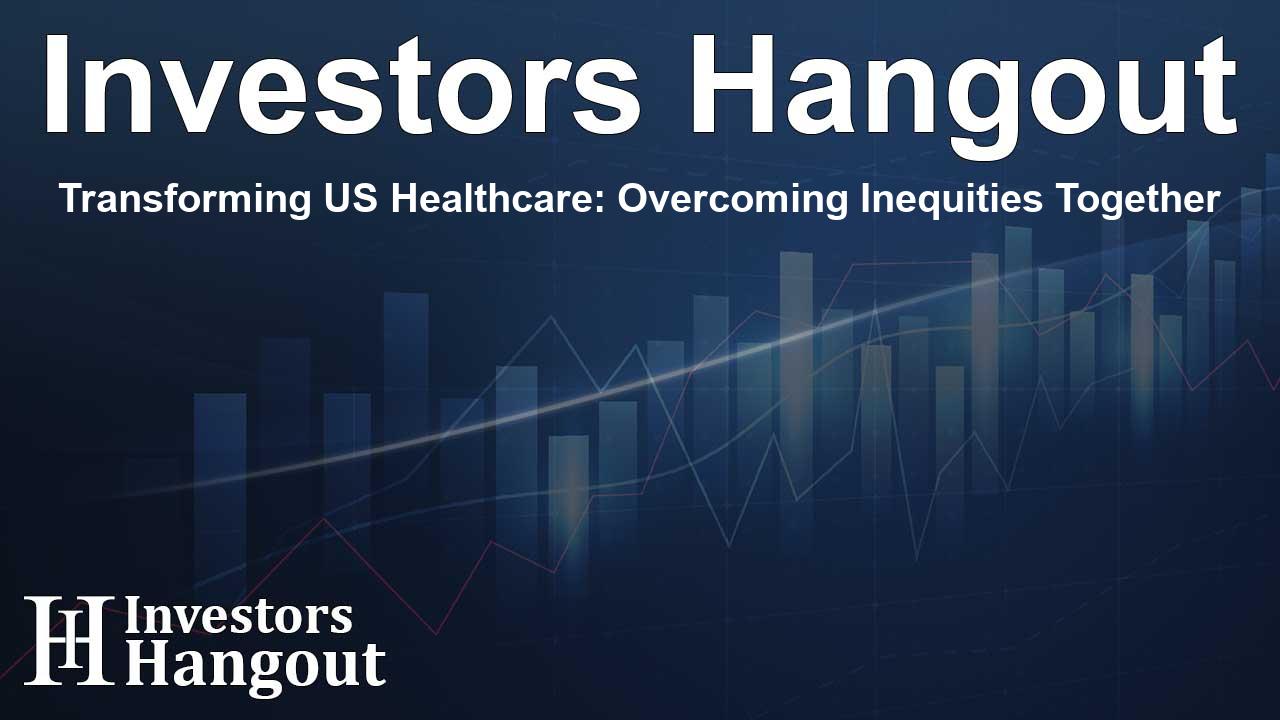Transforming US Healthcare: Overcoming Inequities Together

Transforming Healthcare Through Collective Action
In a recent compelling paper published in Nature Medicine, experts outline a bold vision for advancing population health in the United States by addressing health inequities. This transformative perspective encourages breaking free from old mindsets centered on competition and scarcity, known as zero-sum thinking. The authors urge for united efforts to elevate health outcomes for everyone, emphasizing that improving equity in healthcare ultimately benefits the entire population.
The Detrimental Impact of Health Inequities
Health inequities, which refer to unfair and preventable differences in healthcare access and outcomes, have persisted among various marginalized groups throughout society. These disparities in healthcare access adversely affect not only the disadvantaged individuals but also have far-reaching consequences for the overall health of the community. A more inclusive approach to healthcare can lead to improved overall health for all segments of the population.
Understanding Zero-Sum Health Thinking
The concept of zero-sum thinking suggests that one person or group's gain comes at the expense of another's loss. This mindset is insidious in the current U.S. healthcare system, leading to policies that fail to address the root causes of health inequities. The lead author of the paper, Vincent Guilamo-Ramos, PhD, emphasizes how continuing to embrace this perspective threatens to stall necessary reforms and maintain the status quo.
Addressing Misconceptions About Health Investment
In their exploration, the authors tackle four persistent fallacies associated with zero-sum thinking that hinder healthcare reform. The first fallacy revolves around the misconception of collective vs. individual responsibility. Many believe that increasing government investments in social care diminishes individual accountability. However, the reality is that social determinants of health, including economic and environmental factors, play a significant role in shaping health outcomes.
Countering Destructive Fallacies in Health Policy
The second fallacy involves the belief that pursuing equity reduces overall healthcare affordability. In truth, health inequities generate tremendous economic burdens, as healthcare costs skyrocket when the disadvantaged lack adequate access. Failing to address these needs unnecessarily drives up costs for everyone.
Examining Real Impacts of Health Policies
The third fallacy suggests that supporting the health of the underprivileged reallocates resources away from others. However, history shows that inclusive policies, such as the Affordable Care Act, can benefit the entire population by expanding coverage and preventing discrimination based on pre-existing conditions. This broadening of coverage allows for healthier communities as individuals receive the care they need to thrive.
Integrating Healthcare and Social Welfare Systems
The fourth fallacy addresses the contentious debate over healthcare investments versus social welfare programs. These two areas, often treated as separate, can align to create better health outcomes when effectively integrated. By recognizing the importance of social determinants and merging clinical care with social services, we can drive down costs while improving overall public health.
Breaking the Cycle of Zero-Sum Thinking
Guilamo-Ramos warns that the current political climate often embodies the very notion of "winners" and "losers," which is detrimental to equitable health policies. This rhetoric can lead to harmful cuts in vital programs, such as Medicaid, and hinder important public health initiatives. To genuinely improve population health, society must move beyond outdated mindsets.
By redirecting the narrative toward collaboration and mutual benefit, it becomes possible to foster an environment that prevents health inequities from growing larger. The need for more effective policies that prioritize prevention and promote health equity is urgent; eliminating such disparities can lower healthcare spending and enhance the health of everyone involved.
As the dialogue on health reform progresses, it remains crucial to engage diverse communities in shaping solutions that cater to their unique health needs. Embracing a holistic view of population health means recognizing that when one community thrives, all communities stand to gain.
Frequently Asked Questions
What are the main ideas in the recent Nature Medicine paper?
The paper emphasizes overcoming zero-sum thinking to address health inequities in the U.S., arguing that improving health outcomes benefits everyone.
How do health inequities affect overall community health?
Health inequities not only harm those affected individually but also lead to negative consequences for community health and increase costs for everyone.
What are some common misconceptions about healthcare reform?
Many believe reforms that support the disadvantaged hurt the rest, but these policies often enhance healthcare access and outcomes for all.
How can integrating healthcare and social services improve health outcomes?
By aligning healthcare delivery with social services, communities can address both clinical and social needs, resulting in better health and cost savings.
What steps can be taken to break free from zero-sum thinking?
Transforming the dialogue around health policy to focus on collective well-being rather than competition is crucial for advancing equitable healthcare solutions.
About The Author
Contact Evelyn Baker privately here. Or send an email with ATTN: Evelyn Baker as the subject to contact@investorshangout.com.
About Investors Hangout
Investors Hangout is a leading online stock forum for financial discussion and learning, offering a wide range of free tools and resources. It draws in traders of all levels, who exchange market knowledge, investigate trading tactics, and keep an eye on industry developments in real time. Featuring financial articles, stock message boards, quotes, charts, company profiles, and live news updates. Through cooperative learning and a wealth of informational resources, it helps users from novices creating their first portfolios to experts honing their techniques. Join Investors Hangout today: https://investorshangout.com/
The content of this article is based on factual, publicly available information and does not represent legal, financial, or investment advice. Investors Hangout does not offer financial advice, and the author is not a licensed financial advisor. Consult a qualified advisor before making any financial or investment decisions based on this article. This article should not be considered advice to purchase, sell, or hold any securities or other investments. If any of the material provided here is inaccurate, please contact us for corrections.
